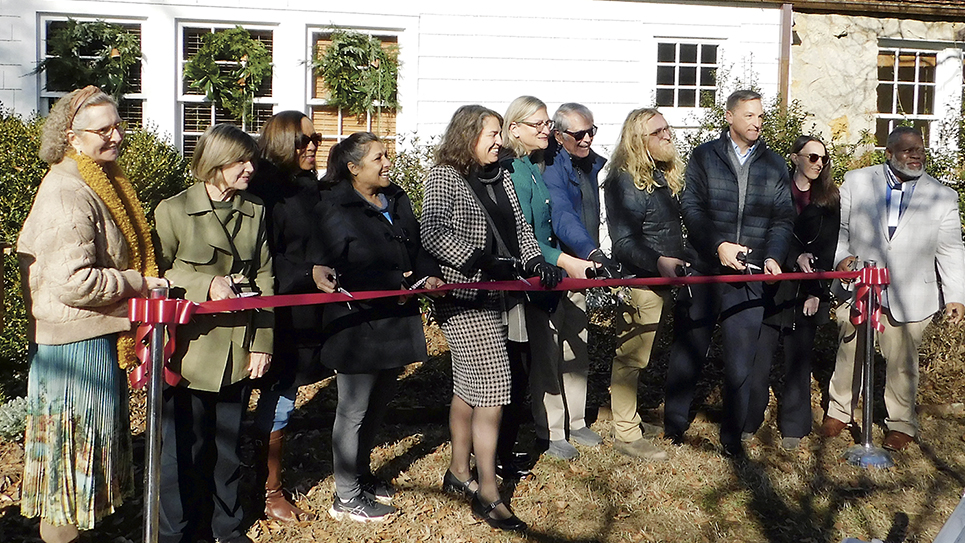With his reform package having passed the state legislature and having eliminated Kentucky’s budget deficit, Albert Benjamin “Happy” Chandler was highly popular in his home state.
Elected governor in 1935, Happy was beginning to think of bigger things for himself. Kentucky’s junior United States senator was Marvel M. Logan. Senator Logan had labored in the vineyards of Kentucky’s Democratic Party for years, having served in a variety of posts, including as State Attorney General and a justice of Kentucky’s Court of Appeals. Marvel Logan was briefly Chief Justice of the State Court of Appeals before taking his seat in the United States Senate. Logan had won election to the Senate in 1930 by defeating John M. Robsion, who had been appointed to fill a vacancy caused by the resignation of Senator Frederic Sackett. M. M. Logan did not prove to be an especially strong candidate, having only edged out Senator Robsion by just over twenty-seven thousand votes even as many Republicans had been discredited by the Great Depression.
Senator Logan did not appear to be much stronger as he approached the 1936 election and it soon became apparent Governor A. B. Chandler intended to replace Logan. Sixty-two years old in 1936, a portly man and not in especially good health, Marvel Logan entered the Democratic primary against former Governor John C. W. Beckham, who had been a strong supporter of Happy Chandler. Governor Chandler threw the full weight of his own considerable popularity and the political weight of his administration against Senator Logan in the primary campaign. Unfortunately, there was a fly in the ointment. Congressman John Y. Brown, the Speaker of the House who had helped Happy during the sales tax battle with Governor Ruby Laffoon, very much wanted to run for the Senate as well. Brown believed Governor Chandler was not only politically indebted to him, but had promised to back him for Marvel Logan’s Senate seat. With the governor’s decision to support J. C. W. Beckham, an angry Congressman Brown decided to run any way.
Brown’s senatorial bid ironically likely helped to keep Marvel M. Logan in the United States Senate. Logan only barely edged out J. C. W. Beckham for the Democratic nomination, winning by little more than two thousand votes.
The irrepressible Happy Chandler soon had another idea for removing M. M. Logan from the Senate. Governor Chandler started a boom for Senator Logan to be appointed to a seat on the United States Supreme Court. When Justice George Sutherland, himself a former senator from Utah, died in 1938, Happy Chandler promoted Logan for the vacancy on the high court. Kentucky’s senior United States senator, Alben W. Barkley, had other ideas and was promoting the candidacy of another Kentuckian, Stanley Reed, to serve on the Supreme Court. Reed was Solicitor General in Roosevelt’s administration and well known to the president. Barkley was the Majority Leader of the United States Senate and President Roosevelt’s spokesman in that body. Reed got the appointment, a sharp reminder to the governor of Senator Barkley’s influence in Washington, D. C.
Many believed Chandler wanted Senator Logan appointed to a judgeship so that he could either appoint himself to the senatorial vacancy or allow his successor as governor to appoint him. Happy did not give up when another federal judgeship came open and the governor pressed for Logan’s appointment and apparently President Roosevelt was receptive to the idea, but Senator Logan was not. Logan had no reason to do anything to accommodate Happy Chandler politically and he had almost five years left to run on his current term in the Senate and he absolutely refused to accept any appointment to the federal bench, preferring to remain in the Senate.
Governor Chandler, undaunted, began to eye Kentucky’s other seat in the United States Senate, held by Alben Barkley. Barkley was up for reelection in 1938 and while Governor Chandler was in Washington, D. C. at the end of January 1938, he met with President Roosevelt who apparently asked Happy to wait to run for the Senate. Chandler was receiving encouragement to run from Virginia’s Senator Harry F. Byrd. Byrd was an ultra conservative Democrat who was opposed to most of FDR’s New Deal and the Virginia senator liked Chandler’s own conservatism. Chandler announced he would challenge Alben W. Barkley for the Democratic nomination for the U. S. Senate on February 23, 1938.
Chandler’s candidacy was the first serious threat to Barkley’s continued tenure in the United States Senate since he first defeated a Republican incumbent in 1926. Happy Chandler was popular, an accomplished campaigner, and had the advantage of having control of the state government. Barkley was not without his own assets; he was one of the most sought after speakers in the country and possessed wit and could recall endless entertaining stories for just about any occasion. Senator Barkley controlled most of the federal patronage in Kentucky and would have the support of Franklin Roosevelt, perhaps the most popular Democrat in Kentucky.
As the senatorial campaign began, Happy Chandler tried to have it both ways; while he attacked the Majority Leader, who was responsible for advancing FDR’s program in the United States Senate, as well as the New Deal, the governor acknowledged Roosevelt’s immense popularity in the Bluegrass State by reminding voters he was personally supportive of the president. The governor was shocked by polling, which gave Senator Barkley a commanding lead. Unsettled, Chandler quickly dropped much of his expressed opposition to the New Deal.
Charges and counter charges of patronage and public employees working for one candidate or the other flew back and forth between the campaigns. Governor Chandler’s campaign accused federal employees, as well as the substantial relief agencies of the New Deal, of working hard for Senator Barkley’s reelection. Many campaigns across the country in 1938 included accusations that employees of the Works Progress Administration were out working for candidates at the behest of powerful senators, a charge that was made in Tennessee during the special election for the United States Senate. The charges of political corruption helped to pass the Hatch Act in Congress the following year.
Senator Barkley naturally pointed to the governor’s own host of appointees and state employees, many of whom were, not surprisingly, working hard for Governor Chandler. Barkley’s campaign pointed out that certain pension checks were delivery to elderly citizens by state employees and leveled the accusation that those seniors were told their checks might be withheld if they did not support Governor Chandler’s Senate bid.
More damaging for the governor’s campaign was the arrival of President Franklin Delano Roosevelt. The president was coming to Kentucky to aid his friend Alben W. Barkley, which Governor Chandler knew all too well, but the irrepressible Happy Chandler greeted the president with open arms and a big smile. Much to Senator Barkley’s irritation, the governor insinuated himself into the president’s entourage and especially every photograph taken of Roosevelt’s visit to Kentucky. As the president’s motorcade began to leave for the Latonia Race Track, Happy Chandler hurried to Roosevelt’s car and seated himself by FDR, leaving Senator Barkley to sit beside his opponent. A beaming Governor Chandler waved to the throngs of people gathered along side the roads to the racetrack while Senator Barkley seemed far less jovial.
The president openly endorsed Barkley, but had some nice things to say about Happy Chandler. The governor used those kind words to his advantage for the duration of the senatorial campaign, merely choosing to pretend FDR had not in fact endorsed his opponent.
Perhaps the most dramatic episode of the race between Happy Chandler and Alben Barkley was not the arrival of Franklin Roosevelt, but the governor’s insistence a Barkley campaign worker had tried to kill him. The governor had become quite ill with symptoms of a high fever, chills and severe stomach cramps as the campaign drew to its close. Governor Chandler’s physician noted that not only Happy had been ill, but a state trooper and the governor’s campaign manager had demonstrated signs of the same illness and symptoms. The doctor mentioned “poisoned water” and claimed all three of the sick individuals had drunk the same water. Happy’s declaration that someone had tried to poison him gave Senator Barkley the opportunity to have some fun with the governor. Walter L. Hixson wrote an excellent article on the campaign between Senator Barkley and Governor Chandler and recalled how Barkley would make fun of Happy’s charge of having been poisoned by having someone offer him a tall glass of water. Senator Barkley would first accept it, then recoil, causing audiences to laugh with glee.
Happy Chandler had enjoyed the strong support of Robert Worth Bingham, owner and publisher of the Louisville Times and Courier Journal. Bingham was a colorful figure in his own right, as well as a power in the Democratic Party. Bingham’s second wife was Mary Flagler, widow of the enormously wealthy Henry Flagler. Mrs. Flagler was reputed to be one of the wealthiest women in the country, if not the wealthiest, at the time of her marriage to Robert Bingham. The union was short lived, as was the new Mrs. Bingham, as she was dead within a year of having married her husband. Naturally, there were whispers that Robert W. Bingham had somehow done away with his bride in order to inherit her fortune. With the death of his wife, Robert Bingham inherited the equivalent of almost $90,000,000 in today’s currency. The purchases of the newspapers in Louisville made Bob Bingham a force to be reckoned with.
Bingham was later named Ambassador to Great Britain by President Roosevelt, but the powerful press lord died in 1937 and so did his support for A. B. Chandler. The Courier-Journal threw its backing to Senator Barkley. Another significant blow to Chandler’s candidacy was the decision by labor to support the incumbent.
Happy Chandler’s candidacy faced long odds against an entrenched incumbent and Barkley won the Democratic nomination for senator by almost seventy-one thousand votes. First elected governor with the biggest majority in Kentucky’s history, Happy Chandler lost the senatorial race by the biggest majority recorded in a primary campaign to that time.
Chandler was still governor and another opportunity to serve in the United States Senate came unexpectedly. On October 3, 1939, Senator Marvel M. Logan died of a heart attack in Washington, D. C. Speculation about whom Governor Chandler might appoint to fill the vacancy was rife when he resigned on October 9. Chandler’s resignation left Lieutenant Governor Keen Johnson as his successor. The day after Happy Chandler resigned the governorship, Governor Keen Johnson appointed A. B. Chandler to the United States Senate.
The irrepressible Happy Chandler had finally reached his goal and left for Washington to take his seat in the world’s greatest deliberative body.






